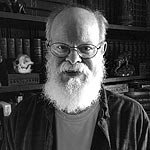
Measurement is ubiquitous in human endeavor throughout time and across cultures, and one could argue throughout the totality of existence. Anything cyclical contains a measurement for sure: orbits of galaxies, planets, moons, day and night until eternity. Currently we are fixated on big data, Covid deaths, our place in the world (GPS’ed), the most recent political poll, or how much cash we have or don’t have in our wallets.
Not too long ago the definition of the kilogram changed. Did you notice? The physical ‘artifact’ of platinum and iridium, one of the most stable alloys locked up in some official Parisian basement, just didn’t satisfy the scientists of measurement (metrologists) who advocated for a more robust, more accurate method of determining the true kilogram. To spare the reader, I’ll not reiterate the mathematical basis for the recent re-definition. (See theverge.com article or search for “new kilogram” if you do want more explanation.) There are a lot of Planck’s constant, quantum physics, electromagnetic force involved, and much more to the nth degree.
It must be pointed out that the kilogram as a measure of weight is now a weightless bunch of calculations. Yet strangely we take at face value the label on the bag of flour, or the chocolate bar or the morning dose of medications. Is there some residual comfort that we still weigh ourselves in pounds (the Brits use ‘stones’) and purchase apples by the peck or bushel at the local fruit stand, heck, even the number of scoops at the ice cream parlor. The point is that to have any scientific method or absolute, consistent units of measure are required.
But as we turn to the measure of art (literature) as a free expression of an individual (or in collaboration) there is not necessarily any consistency. The landscape of poetry changes, as change occurs in all things. It certainly is a different place from my formative years in graduate school: the industry of MFA programs, the internet availability of just about any published poem (and many that are self-published), and a plethora of poetry critique groups. I make no judgements as to the efficacy of these, but list them simply to note the change of the ‘poetry culture.’ I doubt that The Wasteland was ever printed on the side of a bus. I want to note how poetry’s democratic nature participates in our contemporary life.
Poetry was written and read by just about everyone in the nineteenth century it seems, and I’d wager that it never had a ‘dying off’ or was on the brink of extinction in the twentieth century as critics have often announced. If the reader doesn’t care for T. S. Eliot’s erudition, they can turn to Robert Frost. If the reader doesn’t like W. H. Auden, there is always Dylan Thomas. If the reader dismisses Sylvia Plath, they could find comfort in Richard Wilbur. We are a generation out of that century, but the same notion applies.
To categorize poetic creativity into styles or schools seems to me to be a futile exercise and definitely an unfair judgement of poets. Aren’t we all trying, as artists, to be unique either in ‘voice’, aspiration/ambition, in subject matter, in craft of language? But that brings us to deciding relative quality—what makes this poem more valuable, useful, more pleasurable than the next? Does it depend on cultural context, personal preference? Do you avoid a certain poet’s work out of some prejudice? Is it too ethnic? Is it too political? Is it too much of a gender bender? Is it too uncomfortable on the page?
My co-poetry-editor, Sharon Ackerman and I are to judge the Streetlight Magazine Poetry Contest (Hurry up, the closing date is 9 November 2020) and we must be as intent on questioning ourselves as to questioning the viability, the craft, the compelling nature of each entry. Unlike science, there is a sliding scale of quality. As poets/writers we are all accomplished to some degree or other. But poetry is not just words thrown down on the page, meaning anything you want it to mean. It is a special use of language that says more and with more intensity than ordinary language. It is pleasurable and compelling.
My sympathies are with those poets who are as accomplished as those more publicly recognized, who for whatever reason, write regardless of accolades or publishing credits, those unknowns (think Emily Dickinson) who write with earnest conviction and original thought, are meticulous craftsmen, and write for the ages.

Share this post with your friends.

